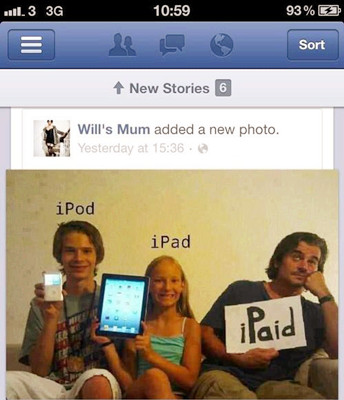(单词翻译:单击)

Using tablet computers like Apple's iPad and Samsung's Galaxy Note just before bed can lead to a poor night's sleep, according to research. More and more people are taking their tablets to bed with them to surf the web, check Facebook or email before switching off the light. But researchers are warning that the blueish light their screens emit can stop users getting a good night's sleep. That is because this type of light mimics daylight, convincing the brain that it is still daytime.
Blue light suppresses production of a brain chemical called melatonin, which helps us fall sleep. This is because our brains have evolved to be wakeful during daylight hours. By contrast, light which is more orange or red in tone does not suppress melatonin production, perhaps because our brains recognize it as a cue that the day is ending. Neurologists have known for years that staring at screens late in the evening can disrupt sleep - be they television screens, computer screens or mobile phone screens. However, because mobiles and tablets are by nature portable - not to say addictive - more people are taking them into the bedroom. Users also tend to hold them much closer to their eyes than a computer or television screen.
Researchers at the Lighting Research Centre, at the Rensselaer Polytechnic Institute in New York, are warning that looking at tablet displays for more than two hours "leads to a suppression of our natural melatonin levels as the devices emit optical radiation at short wavelengths" - in other words, they emit bluer light.
很多人喜欢睡前躺在床上拿iPad或手机上网、看电影或者玩游戏。最近有研究显示,这种行为会影响睡眠质量。研究人员指出,iPad等设备的屏幕会发出蓝色的光,这种光与阳光类似,会抑制大脑分泌褪黑素,从而使其处于清醒状态,难以入睡。而长期睡眠不规律则可能增加肥胖和患乳腺癌的风险。对此,研究人员建议,睡前使用移动电子设备时可尽量将屏幕亮度调暗,并控制使用时间。另外,研究人员还建议平板电脑制造商调整自发光设备的频谱功率分布以减少其对用户睡眠状况的影响。


